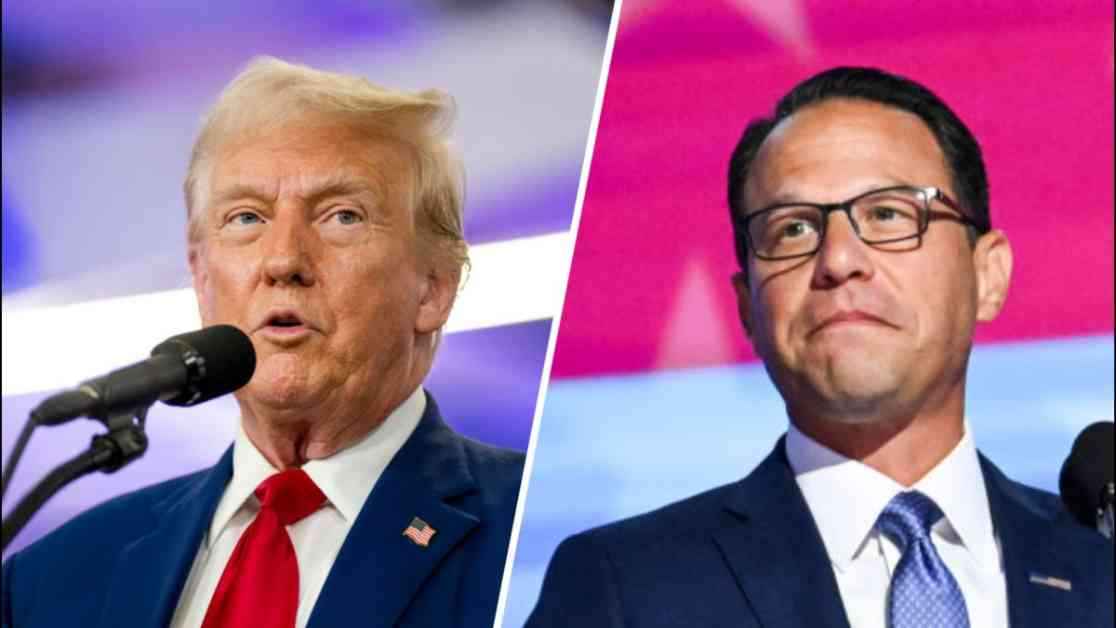Pennsylvania Governor Josh Shapiro recently criticized President Donald Trump’s remarks suggesting that the U.S. should have an ownership position in the Gaza Strip, calling it an “unserious proposal.” In an interview with NBC Philadelphia, Shapiro expressed his concerns about the legality and implications of such a proposal under international law. Trump made these comments during a news conference with Israeli Prime Minister Benjamin Netanyahu, stating that the U.S. would take a “long-term ownership position” in Gaza and referred to it as a potential “riviera of the Middle East.”
Shapiro, who recently presented his third budget proposal during an address from the capitol in Harrisburg, raised questions about the availability of expected federal funds for Pennsylvania. In light of a funding freeze memo that was rescinded last week, there is uncertainty about whether all the funds appropriated for Pennsylvania will be received. Shapiro admitted that he is not confident that the state will receive all the expected funds and mentioned that some funds are still not flowing to the commonwealth.
Challenging Budget Proposals and Transportation Funding
Shapiro’s budget proposal includes an increase in the sales tax allocated to the Public Transportation Trust Fund, aiming to provide additional funding that could assist SEPTA in addressing funding gaps. SEPTA, the local transit agency, is currently preparing its budget, which may involve service cuts and fare increases if additional funding is not secured. However, Shapiro remains optimistic about reaching a resolution, emphasizing the importance of investing in mass transit, roads, and bridges across different communities in Pennsylvania. Last year, Shapiro allocated over $150 million to SEPTA to prevent potential cuts temporarily, highlighting his commitment to supporting public transportation.
Uncertainty and Collaboration for the Future
Despite the challenges posed by the funding freeze and uncertainties surrounding federal funds, Shapiro remains determined to navigate through these obstacles. By collaborating with partners in Pennsylvania and evaluating potential next steps, Shapiro is focused on finding solutions to ensure that the state receives the necessary financial resources. His commitment to investing in critical infrastructure and public transportation reflects his vision for a more sustainable and efficient future for Pennsylvania.
In conclusion, Governor Josh Shapiro’s critique of President Trump’s Gaza comments sheds light on the complexities of budgeting and funding allocations in Pennsylvania. As the state grapples with uncertainties regarding federal funds and the need for strategic investments in transportation, Shapiro’s leadership and determination to address these challenges are crucial for the state’s future prosperity and development.


